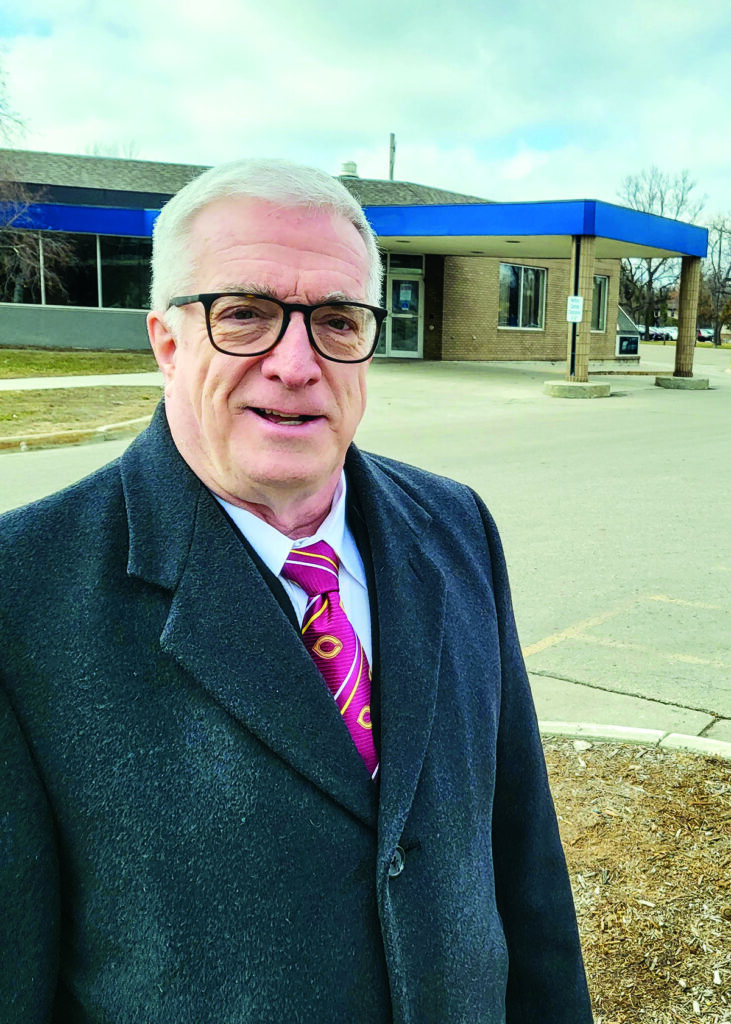
Dr. Steve Stapleton, professor and chair of Concordia’s nursing department. (Photo/Russ Hanson)
Nancy Edmonds Hanson
Concordia College is introducing a fast-track path for people looking for a second career in nursing.
Designed for those who already have a bachelor’s degree in another field – science-related or otherwise – the Accelerated BSN Program (bachelor of science in nursing) promises that after just 12 months of intensive classroom study and lab experience, graduates will be ready to take the NCLEX-RN exam for full accreditation in the profession.
“We’re really excited about the opportunities this offers those who feel a calling to the profession, or for mid-career people who want to make a switch,” Dr. Steve Stapleton reports. Stapleton, who has chaired the nursing department since August 2020, says the first class of 16 will being their studies in January 2023 and receive their BSN degrees the following December.
Nursing education has long been a part of Concordia’s curriculum for traditional four-year students, who complete a freshman year of general liberal arts requirements before being immersed in the health-care field as sophomores. An accelerated agenda for those seeking second degrees for changing careers was introduced in 2003. It permitted students to acquire their nursing credentials in just 18 months if they already completed certain prerequisites for first degrees. Chemistry, biology and psychology majors are probably already qualified.
The new program condenses that 18-month schedule into an even more intense course of study.
Accelerated programs like Concordia’s have been popping up all over the country for the past decade, though theirs is the first in this region. Stapleton says there are currently some 350 second-degree programs nationwide; about half accelerated. “Choosing a 12-month program is an economic as well as vocational decision,” he observes. “It’s more attractive in terms of both time and cost.”
The second-degree programs’ popularity is based largely on the rapidly expanding demand for nurses. The course of study focuses entirely on the classes and lab work required by the BSN degree. Graduates take the same NCLEX – the National Council Licensure Exam – required of all prospective registered nurses.
Stapleton, a native of Chicago, Illinois, is a strong advocate of this short-but-intense preparation. That’s how he himself entered the profession. “I am a 12-month accelerated graduate of St. Louis University,” he says. “I’m living proof of how well this approach works.” After earning his BSN there in 1982, he practiced in intensive care, the emergency department and the operating rooms of Advocate Illinois Masonic Medical Center. After completing his doctorate in 2010, he shifted to teaching at Illinois State University and Missouri State University. He has chaired Concordia’s nursing department for two and one-half years.
Stapleton anticipates a ready pool of applicants for the new program. “We have worked with Sanford and Essentia and invited them to identify employees who may want to go back and get their nursing degrees,” he says.
“For those who are already in the workforce but want to make a change, taking a year and a half off to for more education can be a problem,” he notes. “When they enter our new program, they can accomplish their goal in just one year … and know that professional employment is waiting for them.”


